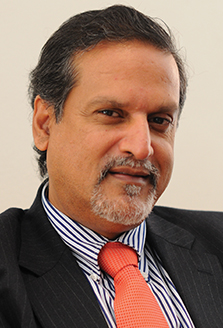Africa’s equity markets have taken a battering over the past few years. Mirroring the continent’s more challenging economic climate, key stock indices across the region were hit as global headwinds undermined regional growth.
Mauritius was no exception to this trend, as the Stock Exchange of Mauritius’s (SEM's) all-share index, the Semdex, dropped by 11.5% between July 2015 and June 2016. That this performance was, in relative terms, better than several continental peers points to the collective struggle faced by markets in the region.
“The past two years have been very difficult for emerging markets in general. This challenging environment was due to a convergence of a number of factors, including slowing growth in China, falling commodity prices and poorly performing currencies in a number of markets,” says Sunil Benimadhu, chief executive of the SEM.
An African star
Although the Semdex has encountered problems over the past financial year, most of the country’s bellwether stocks nevertheless enjoyed sound earnings growth in that period. In part, this was supported by the country’s gross domestic product growth, which has hovered north of 3.5% over the past couple of years. While still short of its full potential, this figure contrasts sharply with some leading African economies, including South Africa, which barely grew in 2016, and Nigeria, which entered into recession.
Predictably, this poor performance led many investors to exit their positions in Africa. “When fund managers decide to reduce their exposure to emerging and frontier markets, they do not necessarily distinguish between good performing markets and poor performing markets. They typically reduce their asset allocation to the region on a proportionate basis,” says Mr Benimadhu.
Nevertheless, the first three months of 2017 have been more positive for the SEM. With the Semdex up by 6.9% over the period, investors are demonstrating renewed interest in the attractive valuations that are now on offer. Beyond this, Mr Benimadhu takes a broader view on the SEM’s recent performance by noting the positive indicators that lie beyond the performance of the main index.
“If you consider the SEM’s performance from other perspectives, including listing and capital raising, we have performed very well. The substantial increase in the number of new listings and the amount of capital raised on SEM’s platform in recent years are due to the implementation of a new strategic orientation to move away from a domestic, equity-centric exchange to a multi-asset-class international exchange today,” he says.
International index
The SEM’s transformation into a truly international exchange was sealed by the recent creation of the SEM-All Shares Index (ASI), which includes both local and internationally listed companies, in contrast with the Semdex, which lists only domestic entities. The launch of the SEM-ASI has helped to grow the SEM’s market capitalisation by 50%.
“During the past few years, most of the listings that we have had have been non-Mauritius based. When we realised that these companies had become important players in our market in terms of their size and number of investors, we decided that the time had come for us to create a new index, the SEM-ASI,” says Mr Benimadhu.
But beyond the launch of its new index, the SEM is leveraging its status as a multi-currency international exchange to attract a diverse range of new listings. In the coming months, it will host an African Development Bank exchange-traded fund (ETF) in a first for the region.
“The African Development Bank plans to launch an ETF that will invest in benchmark African government bonds from five different sovereign issuers. This will be listed on the SEM by the middle of 2017. We welcome this initiative because we think it’s going to contribute to the development of the region’s capital markets,” says Mr Benimadhu.
Targeting international investors, the ETF will be a dollar-denominated instrument. And it is this type of sophisticated listing that is helping to raise the profile of the SEM as it continues on its journey of becoming a truly global exchange offering an inside edge for engaging with Africa.
“From a strategic perspective, Mauritius aims at being the hub for investments into Africa. And for this strategy to succeed, it is important that Africa as a region continues to grow and remains stable,” says Mr Benimadhu.












